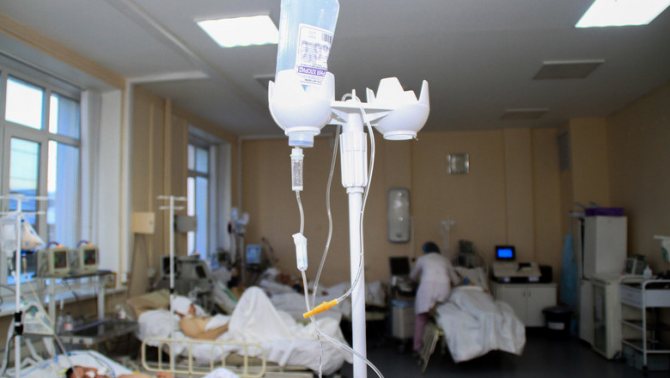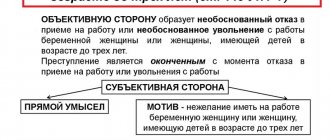Responsibility for quarantine violations
In connection with the tightening of penalties for violating legislation in the field of sanitary and epidemiological welfare of the population, many managers are interested in the question of how likely it is to be subject to administrative fines.
To answer this question, I propose to analyze with us the current legislation and regulations.
From April 1, 2021, Article 6.3. The Code of Administrative Offenses of the Russian Federation has been supplemented with parts 2 and 3, according to which:
Violation of legislation in the field of ensuring the sanitary and epidemiological well-being of the population, expressed in violation of existing sanitary rights or hygienic standards, failure to comply with sanitary, hygienic and anti-epidemic measures, committed during an emergency situation
or if
there is a threat of the spread of a disease
that poses a danger to others, or
during the period
of restrictive measures (quarantine)
in the relevant territory , or
failure to comply
within the prescribed period with a legal
order (resolution) issued during the specified periods or the requirement of a body (official) implementing the federal state sanitary and epidemiological supervision, on the implementation of sanitary and anti-epidemic (preventive) measures
- entail the imposition of an administrative fine on citizens in the amount of fifteen thousand to forty thousand rubles; for officials - from fifty thousand to one hundred and fifty thousand rubles; for persons carrying out entrepreneurial activities without forming a legal entity - from fifty thousand to one hundred and fifty thousand rubles or administrative suspension of activities for a period of up to ninety days; for legal entities - from two hundred thousand to five hundred thousand rubles or administrative suspension of activities for a period of up to ninety days.
Actions provided for in Part 2 of this article, resulting in harm to human health or the death of a person, if these actions (inaction) do not contain a criminal offense, shall entail the imposition of an administrative fine on citizens in the amount of one hundred fifty thousand to three hundred thousand rubles; for officials - from three hundred thousand to five hundred thousand rubles or disqualification for a period of one to three years; for persons carrying out entrepreneurial activities without forming a legal entity - from five hundred thousand to one million rubles or administrative suspension of activities for a period of up to ninety days; for legal entities - from five hundred thousand to one million rubles or administrative suspension of activities for up to ninety days.
What legislation do you mean?
We are talking about the Federal Law of March 30, 1999 N 52-FZ “On the sanitary and epidemiological welfare of the population”, to a greater extent about the norms provided for in Chapters 3 and 4 of this Law.
According to Art. 29 of the Law, in order to prevent the occurrence and spread of infectious diseases and mass non-infectious diseases (poisonings), the sanitary and anti-epidemic (preventive) measures provided for by the sanitary rules and other regulatory legal acts of the Russian Federation must be carried out in a timely manner and in full, including:
- on the implementation of sanitary protection of the territory of the Russian Federation, the introduction of restrictive measures (quarantine),
- implementation of production control,
- measures regarding patients with infectious diseases,
- conducting medical examinations,
- preventive vaccinations,
- hygienic education and training of citizens.
If there is a threat of the emergence and spread of infectious diseases and mass non-infectious diseases (poisonings), SES officials have the right to issue instructions to citizens and legal entities
- on eliminating identified violations of sanitary and epidemiological requirements;
- on the cessation of sales of products that do not meet sanitary and epidemiological requirements, including food raw materials and food products
- on carrying out additional sanitary and anti-epidemic (preventive) measures;
- on conducting laboratory examinations of citizens who have been in contact with patients with infectious diseases, and medical observation of such citizens;
- on the performance of work on disinfection, disinfestation and deratization in foci of infectious diseases, as well as in territories and premises where conditions for the emergence or spread of infectious diseases exist and persist.
As for the Rules and hygiene standards, the situation here is more complicated. There are countless such rules in effect on the territory of the Russian Federation, and it takes quite a lot of time to study them.
In accordance with Article 2 of the Federal Law of March 30, 1999 N 52-FZ, the sanitary and epidemiological well-being of the population is ensured, inter alia, through state sanitary and epidemiological regulation.”
The classification of normative and methodological documents of the state sanitary and epidemiological regulation system is established by Guideline R 1.1.002-96″ (approved by the State Committee for Sanitary and Epidemiological Supervision of the Russian Federation on May 14, 1996). We are interested in section 3 of the Guide. It contains a list of documents related to Epidemiology.
It currently includes the following documents:
| Name | Document or body that approved sanitary requirements |
| Temporary guidelines “Prevention, diagnosis and treatment of new coronavirus infection (COVID-19). Version 4 (03/27/2020) | Ministry of Health of Russia |
| Temporary recommendations for organizing laboratory diagnostics of new coronavirus infection (2019-nCoV) | Rospotrebnadzor (letter dated January 21, 2020 N 02/706-2020-27) |
| Preliminary recommendations for preventing the spread of new coronavirus infection (2019-nCoV) in medical organizations | Rospotrebnadzor (letter dated January 25, 2020 N 02/847-2020-27) |
| Methodological recommendations on carrying out in organizations carrying out educational activities in educational programs of preschool education and childcare and supervision of any form of ownership, as well as individual entrepreneurs, the necessary measures aimed at reducing the risks of the spread of a new coronavirus infection, including the organization of a medical examination of children during the functioning of the specified educational organizations in the free visiting mode | Ministry of Education of Russia (letter dated March 25, 2020 N GD-65/03) |
| On strengthening sanitary and epidemiological measures in educational organizations | Ministry of Education of Russia (letter dated March 13, 2020 N SK-150/03) Rospotrebnadzor (letter dated March 13, 2020 N 02/414b-2020-23) |
| Interim guidance “WHO Infection Prevention and Control Guidelines for the Safe Handling of Cadaveries in the Context of COVID-19” | Rospotrebnadzor 03/24/2020 |
| Measures to prevent influenza and acute respiratory viral infections in the 2021-2021 epidemic season | Resolution of the Chief State Sanitary Doctor of the Russian Federation dated July 10, 2019 N 10 |
| Instructions for carrying out disinfection measures to prevent diseases caused by coronaviruses | Rospotrebnadzor (Letter dated January 23, 2020 N 02/770-2020-32) |
| Protocol of measures to prevent the intrahospital spread of infectious diseases caused by coronavirus strain COVID-19 in a medical organization | Order of the Ministry of Health of Russia dated March 16, 2020 N 171 |
| Recommendations for carrying out preventive and disinfection measures to prevent the spread of new coronavirus infection in public catering organizations and catering units of educational organizations | Rospotrebnadzor (Letter dated 02/14/2020 N 02/2230-2020-32) |
| Recommendations for carrying out preventive measures and disinfection of vehicles for transporting passengers in order to prevent the spread of the new coronavirus infection | Rospotrebnadzor (letter dated 02/13/2020 N 02/2120-2020-32) |
According to paragraph 5.2 of the Temporary Guidelines “Prevention, diagnosis and treatment of new coronavirus infection (COVID-19). Version 4 (03/27/2020)
Nonspecific prevention of coronavirus infection includes:
- Order of the Government of the Russian Federation dated March 16, 2020 N 635-r (as amended on March 25, 2020) <On the temporary restriction of entry into the Russian Federation of foreign citizens and stateless persons and the temporary suspension of the registration and issuance of visas and invitations>
- Order of the Ministry of Health (Order of the Ministry of Health of Russia dated March 19, 2020 N 198n (as amended on March 27, 2020) “On the temporary procedure for organizing the work of medical organizations in order to implement measures to prevent and reduce the risks of the spread of the new coronavirus infection COVID-19"
Administrative liability for violation of sanitary legislation
So, administrative liability for violation of sanitary legislation occurs in a number of cases stipulated by law.
Category of violations related to the operation of buildings and transport
This category of illegal actions includes violations in the following areas of the legislative segment of interest to us:
- compliance with the standards and requirements imposed directly on residential premises;
- operation of premises intended directly for production purposes, as well as public areas;
- the use of various buildings, structures, as well as the equipment located in them;
- use of transport.

Administrative liability involves the imposition of such a punishment on criminals as a fine
Provided that you have violated the law in one of the above areas, the citizen may face the following penalties:
- an official warning about the consequences that will occur if the indicated violations are repeated;
- the imposition of penalties, the amount of which will vary from five to ten times the minimum wage for ordinary citizens;
- imposition of a fine, the amount of which will be from ten to twenty minimum wages for individual entrepreneurs and persons holding certain government positions;
- imposing a fine on legal entities that have violated the law, the amount of which will vary from one hundred to two hundred minimum wages.
Category of violations related to the handling of food products and raw materials, as well as chemical and biological substances
This category includes violations of the law associated with refusal to comply with requirements associated with the following activities:
- catering for the country's population;
- supply of food products from abroad;
- the use of names that have a production and technical orientation and are potentially dangerous to humans;
- production and use of products used for human household needs;
- production, use and circulation of food additives, industrial raw materials, as well as those production items that come into contact with them;
- the use of chemical or biological substances that are harmful to human health.

Failure to comply with sanitary standards in the field of food hygiene can lead to such catastrophic consequences as mass poisoning, mass disease, etc.
Violation of the above points entails the imposition of a fine in the form of a monetary payment, the amount of which will vary depending on who it is imposed on.
- So, if we are talking about paying a fine by an ordinary citizen, he will have to part with ten to fifteen times the minimum wage.
- For individual entrepreneurs and citizens holding government positions, this amount will be no less than twenty and no more than thirty minimum wages.
- As for sanctions for legal entities, the amount of the fine that is relevant for them will be from two hundred to three hundred minimum wages.
Why is there such a clear difference between the fine amounts? Everything is simple here: the responsibility in the field of compliance with sanitary legislation concerning legal entities is inherently much more serious than that assigned to other categories of persons. In addition, disturbances caused by entire formations, as a rule, also always have a significant scale.

Depending on which category the person we are interested in, who is a violator of sanitary legislation, belongs to, the penalties applicable to him will ultimately differ.
Category associated with violation of sanitary requirements in the field of use of water resources, land and air masses
Thus, in the paragraph under consideration it is advisable to include a number of the following areas of human activity in which violations in the area of interest to us may arise:
- compliance with sanitary and epidemiological standards regarding the country’s water infrastructure, drinking water and drinking supplies to the population;
- following the rules for the use of atmospheric air masses on the territory of urban, rural and other settlements, as well as air accumulated directly in places where people stay, temporary or permanent;
- use in accordance with the rules of soil, territories of settlements, sites, and its maintenance in accordance with legal norms;
- processing of production and consumption waste, the cycle of which includes both collection and disposal, transportation, further storage, etc.;
- planning construction processes and implementing them through the construction of buildings in the city and rural areas.

In some cases, when minor violations are committed, it is possible to apply the most generous punishment in the form of an official warning. If the unlawful act is repeated, more significant measures will subsequently be applied.
Violations in the listed areas also imply the imposition of a certain type of punishment, namely:
- official warning;
- imposing a fine.
Financial liability will be imposed, as before, on:
- ordinary citizens;
- representatives of categories of individual entrepreneurs and officials;
- legal entities.
Thus, they will all again part with a certain amount of the minimum wage. So, for example, citizens will part with ten to fifteen designated values, entrepreneurs and persons holding government positions will allocate from twenty to thirty minimum wages, but legal entities, which, as we remember, pay the most, will be forced to pay a fine to the treasury , the value of which will be from two hundred to three hundred minimum wages.
Category of violations related to the requirements in the field of sanitary and epidemiological legislation related to working conditions, training, work
It is also of great importance to comply with the legislation of the category of interest to us in the field of creating favorable and suitable working conditions, as well as conditions for carrying out educational work and work related to the training of citizens.
In addition, it is very important to organize correctly labor interaction with sources of factors of physical impact on humans, various substances of the biological category, microbiological organisms, toxins, etc. If you violate the law in this area, you will be held accountable to the fullest extent of the law. The following division of penalties for categories of persons already known to us is assumed:
- ordinary citizens of our country will get by with a warning or a fine;
- the entrepreneurial layer of the population and officials will suffer losses in the form of twenty to thirty minimum wages;
- legal entities will spend from two hundred to three hundred minimum wages on compensation for unfulfilled obligations.

It is imperative to properly organize the interaction of a citizen with sources of chemical, physical, etc. effects on the body, provided that it works with this source
Failure to implement preventive measures
Each organization is obliged to carry out sanitary and anti-epidemic measures. If you refuse to carry them out, miss deadlines, disrupt the normal course of these activities and other violations, the following consequences may occur:
- the entrepreneurial layer of the population and representatives of government positions will be forced to pay as a fine the minimum wage of thirty or forty times the amount;
- legal entities, according to tradition, will have to part with approximately three hundred to four hundred times the minimum wage currently established for the Russian Federation.
Provided that there has been a violation of sanitary legislation, administrative liability is imposed on the guilty person by issuing a corresponding resolution of an authorized official holding a post in the organization exercising state control in the field of sanitary and epidemiological legislation.
As for the production process that begins after the issuance of a decision, it is regulated by the procedure that was previously established by the Code of our country regulating relations in the field of violation of administrative order.

The imposition of administrative liability on a citizen is carried out by issuing a corresponding resolution by an official
Disciplinary liability for violation of sanitary legislation
As for disciplinary liability, the law determines that officials, employees of any organizations or enterprises who have violated the law in the area of interest to us must be subject to penalties directly at the place of work. These penalties may take the form of:
- suspension from work;
- dismissal from a position;
- layoffs, etc.
The responsibility for imposing penalties falls on the shoulders of the management team of enterprises. At the same time, all activities related to this process are carried out on the recommendation of the chief government doctor or his deputy.

Criminal liability is assigned in accordance with the Criminal Code of our country and its specific provisions
Criminal liability for violation of sanitary legislation
The Criminal Code of our country also provides for a corresponding range of penalties for violating the rules in the field of sanitary and epidemiological legislation. So, if the actions of a person, committed through negligence, resulted in the occurrence of a mass disease of citizens, their poisoning and similar consequences, the offender will have to:
- pay out of your own pocket a fine of up to 80 thousand Russian rubles;
- pay a fine in the amount of wages or other total income accumulated over 6 months;
- lose the right to accept a certain position;
- lose the right to conduct a specific activity for a period of up to three years;
- attend compulsory work for up to 360 hours;
- attend correctional labor for up to one year;
- be imprisoned for up to a year.
Provided that the same act resulted in the death of a person or several citizens, the list of punishments will be as follows:
- compulsory work for a period of up to 480 hours;
- correctional labor from six months to two years;
- forced labor for a period of up to five years;
- imprisonment for up to five years.

Which punishment will be determined for the guilty citizen will be decided in each specific case by the judiciary
What is an emergency when and by whom is it introduced?
The concept of an emergency situation is given in Article 1 of the Federal Law of the Russian Federation dated December 21, 1994 N 68-FZ (as amended on April 1, 2020) “On the protection of the population and territories from natural and man-made emergencies.” According to this provision of the law, an emergency situation
- this is a situation in a certain territory that has arisen as a result of an accident, a dangerous natural phenomenon, a catastrophe, the spread of a disease that poses a danger to others, a natural or other disaster that may result or has resulted in human casualties, damage to human health or the environment, significant material losses and disruption of people's living conditions.
What is quarantine
Restrictive measures (quarantine)
are introduced at checkpoints across the State Border of the Russian Federation, on the territory of the Russian Federation, the territory of a constituent entity of the Russian Federation, a municipal entity, in organizations and at facilities of economic and other activities in the event of a threat of the emergence and spread of infectious diseases.
Quarantine is introduced (cancelled) on the basis of proposals, orders of chief state sanitary doctors and their deputies by decision of the Government of the Russian Federation or an executive body of a constituent entity of the Russian Federation, a local government body, as well as a decision of authorized officials of the federal executive body or its territorial bodies, structural divisions, in which are in charge of defense and other special purpose facilities.
The procedure for implementing restrictive measures (quarantine) and the list of infectious diseases, in the event of a threat of occurrence and spread of which restrictive measures (quarantine) are introduced, are established by sanitary rules and other regulatory legal acts of the Russian Federation.
About typical violations of sanitary legislation at catering establishments
Monitoring compliance with the mandatory requirements of sanitary legislation is one of the priority tasks of the Rospotrebnadzor Office for the Khabarovsk Territory.
The main documents regulating the work of public catering organizations, on the basis of which Rospotrebnadzor conducts its inspections:
· SP 2. 3. 6. 1079 - 0 1 Sanitary and epidemiological requirements for public catering organizations, the production and circulation of food products and food raw materials in them;
· GOST 31987-2012 “Catering services. Technological documents for public catering products. General requirements for design, construction and content";
· Technical Regulations of the Customs Union “On the safety of food products” (TR CU 021/2011).
Complaints about the work of public catering organizations are regularly received by the Office of Rospotrebnadzor in the Khabarovsk Territory. Thus, in 2018, about 200 such requests were received.
Moreover, in most cases, violations detected at public catering establishments are of a typical nature.
One of the most common violations is a violation of the flow of technological processes.
At catering establishments, cross-flow of raw materials and finished products, dirty and clean dishes, and a lack of production and storage facilities when working with raw materials and a wide range of dishes are allowed.
At the same time, according to clause 5.2 of SP 2.3.6.1079-01, the set and area of premises must correspond to the capacity of the organizations and ensure compliance with sanitary rules and regulations.
And clause 5.1 of these sanitary rules states that “space-planning and design solutions for premises must provide for a sequence (flow) of technological processes that exclude counter flows of raw materials, raw semi-finished products and finished products, used and clean dishes, as well as counter movement of visitors and staff "
Thus, the processing of raw and finished products must be carried out separately in specially equipped workshops. In organizations that do not have a workshop division, with a limited range of produced dishes, it is allowed to process raw materials and finished products in the same room, but on different tables (clause 8.4 SP 2.3.6.1079-0). At pre-production organizations working on semi-finished products, work on raw materials is not carried out.
As surprising as it may sound, the lack of toilets for visitors in catering establishments still remains a fairly common occurrence. While the sanitary rules clearly state this issue: “All stationary organizations are equipped with toilets and sinks for washing the hands of visitors. Combining toilets for staff and visitors is not allowed" (clause 3.14 SP 2.3.6.1079-01).
One of the frequent complaints about catering establishments that the Department receives is the poor quality of cleaning of premises. Inspections confirm that quite often catering establishments do not have staff whose responsibilities include maintaining cleanliness, and kitchen workers or even cooks are brought in for cleaning.
In accordance with clause 5.14 of SP 2.3.6.1079-01, “in order to prevent the occurrence and spread of infectious diseases, cleaning of production, auxiliary, storage and household premises is carried out by cleaners, and cleaning of workplaces is carried out by workers at the workplace. Special personnel are assigned to clean the toilets.”
Another fairly common violation is a violation of the processing regime for tableware and equipment.
Thus, in the kitchen it is often allowed to wash tableware and cutlery in two washing baths; the necessary information is not provided in the instructions for processing dishes; dishes are not disinfected at the end of the working day, etc.
At the same time, in accordance with clause 6.11 SP 2.3.6.1079-01 “For washing dishes by hand, it is necessary to provide three-section baths for tableware, two-section baths for glassware and cutlery.” And according to clause 6.14 of SP 2.3.6.107901, washing tableware by hand is carried out in the following order:
· mechanical removal of food debris;
· washing in water with the addition of detergents in the first section of the bath;
· washing in the second section of the bath in water with a temperature not lower than 40 degrees. C and adding detergents in an amount two times less than in the first section of the bath;
· rinsing dishes in a metal mesh with handles in the third section of the bath with hot running water at a temperature of at least 65°C using a flexible hose with a shower head;
· drying dishes on lattice shelves and racks.
In accordance with clause 6.15 SP 2.3.6.1079-01 “At the end of the working day, all tableware and cutlery are disinfected with products in accordance with the instructions for their use.”
Failure to comply with the requirements for receiving and storing food is another common violation.
Thus, at public catering establishments it is allowed to accept products in the absence of shipping documents, incl. information about the declaration of conformity, veterinary accompanying documents for unprocessed food products of animal origin, there is no marking on the transport packaging or it is not preserved until the products are completely used, expiration dates are violated, there are cases of storing raw materials and finished products in the same refrigerator.
To avoid such violations, you must carefully read Section VII SP 2.3.6.1079-01, which is called “Requirements for transportation, receipt and storage of raw materials and food products.” It describes in detail the conditions for transporting food products, what documents should accompany certain products, how to store them correctly, etc.
Quite often, public catering establishments lack technical documentation for the products they produce, namely: collections of recipes, technological maps, technical and technological maps.
At the same time, according to GOST 31987-2012, cooks and confectioners of public catering establishments at their workplaces must be provided with technological maps. Cards are drawn up for each dish, culinary or confectionery product based on a collection of recipes used at a given enterprise.
The technological maps indicate: the name of the dish, the number and version of the recipe, the rate of input of raw materials per serving and provides a calculation for a certain number of servings or products, indicating the yield of the dish.
Technological maps are drawn up in the prescribed form, signed by the director, production manager and calculator and stored in the production manager’s file cabinet.
Another type of technical documentation at public catering establishments is technical and technological maps. They are developed for new and branded dishes and culinary products - those that are produced and sold only in a given food establishment. The validity period of the TTK is determined by the enterprise itself.
The storage conditions and terms of ready-made meals are also violated. Thus, it is allowed to store chilled first courses, vacuumize semi-finished products in the absence of technological documents, without confirming the conditions and expiration dates of such semi-finished products. You can learn more about the rules for storing and selling ready-made dishes in section IX SP 2.3.6.1079-01, which is called “Requirements for the distribution of dishes and the release of semi-finished products and culinary products.”
This is not a complete list of violations that specialists from the Rospotrebnadzor Office for the Khabarovsk Territory identify at public catering establishments. Separately, we can consider the topics of insecticidal treatments, the introduction of HASP principles in production and many other issues that may become topics for further publications.
SVETLANA LOSEVA
, DEPUTY HEAD OF THE DEPARTMENT OF ROSPOTREBNADZOR FOR THE KHABAROVSK REGION
Source of publication: information monthly “The Right Decision” issue No. 04 (198) release date of 04/22/2019.
The article was posted on the basis of an agreement dated October 20, 2016, concluded with the founder and publisher of the information monthly “Vernoe Reshenie” LLC “.
Additional measures to protect the population
When a high alert regime or emergency situation is introduced, a government body or official, defined by paragraphs 3 and 4 of Article 4.1 of the Federal Law of December 21, 1994 N 68-FZ (as amended on April 1, 2020) “On the protection of the population and territories from emergency situations” natural and man-made”, can determine the manager of emergency response work, who is responsible for carrying out these works in accordance with the legislation of the Russian Federation and the legislation of the constituent entity of the Russian Federation, and take additional measures to protect the population and territories from emergency situations:
- restrict access of people and vehicles to the territory where there is a threat of an emergency, as well as to the emergency zone;
- suspend the activities of an organization that finds itself in an emergency zone if there is a threat to the life safety of the employees of this organization and other citizens located on its territory;
- implement measures caused by the development of an emergency situation, which do not limit the rights and freedoms of humans and citizens and are aimed at protecting the population and territories from an emergency situation, creating the necessary conditions for preventing and eliminating an emergency situation and minimizing its negative impact.








